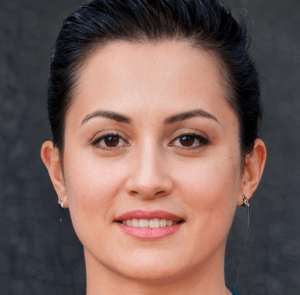Do you own a business? Every founder faces a gamble when launching a business. The trick is not avoiding risk but learning how to calculate it.
When you’re building a startup, you live in a world of uncertainty. You don’t know if the investors you pitched will bite. You can’t guarantee customers will love your product. Yet you have to act anyway. That tension between risk and action is what defines entrepreneurship. And oddly enough, you can see the same principles at work in places you might not expect, like games of chance. Think of something like free craps. It is not about chasing winnings. It is about sharpening the habit of probability thinking in a low-stakes space.
Why Startups Feel Like a Deck of Cards
Launching a company feels a lot like sitting down at a card table. You get dealt a hand. Some hands are great. Others force you to get creative. You cannot control what shows up, but you can control how you respond.
Every founder knows the feeling of taking a chance on a decision without total certainty. Should you hire that first employee now or wait another quarter? Do you put your last bit of capital into marketing or save it for development? Each move is a bet. Some are bold, some are cautious, but none are guaranteed.
Probability is what separates reckless gambles from calculated risks. In blackjack, the smart player studies the numbers. They know the odds of drawing a certain card. They know when the math says to hit and when it says to hold. In startups, the same logic applies. You cannot predict the market with absolute clarity, but you can learn to see the odds that a particular path is worth the risk.
The Power of Probability Thinking
Too many new entrepreneurs rely on instinct alone. Gut feelings are important, but without a sense of probability you end up making decisions that look brave but are actually reckless.
Imagine two founders. One treats every opportunity like a coin flip. They leap in and hope for the best. The other pauses. They ask, “What’s the chance this will succeed? What’s the cost if it doesn’t?” That second founder is practicing probability thinking.
Probability thinking does not remove uncertainty. It just gives you a clearer lens. You can weigh whether a new product launch is worth the money. You can measure if the chance of securing funding is worth the pitch fees and time. And over time, those decisions stack up. The founder who thinks in odds will almost always outlast the one who just “goes with it.”
Risk Without Ruin
The beauty of practicing probability in games is that the stakes are imaginary. In blackjack online for free you can push your risk instincts without the fear of losing anything real. That practice translates when you are back in the boardroom.
The key lesson? Risk is unavoidable. What matters is managing it so it does not destroy you. In blackjack you don’t bet everything on one hand. You manage your bankroll so one bad draw does not wipe you out. In startups the same idea applies. No single decision should be able to bankrupt the entire company. Healthy capital allocation, cautious scaling and fallback plans are your equivalent of bankroll management.
Storytelling with Odds
Founders often underestimate how probability shapes the stories they tell. Investors want to hear not just what you are building but why the odds of success lean in your favor. They want to know that you see the risks clearly and have a plan to mitigate them.
The strongest pitch is rarely “this will work for sure.” The strongest pitch is “here’s why the probabilities stack in our direction and here’s how we handle the downside if they don’t.” That is exactly how the smartest blackjack players think. They are not promising a win every time. They are playing the long game, stacking small advantages and accepting that losses are part of the process.
From the Table to the Market
The comparison between cards and startups is not about glamorizing gambling. It is about reminding founders that probability thinking is a muscle. The more you train it, the stronger it gets. And when you find low-stakes ways to practice, you build instincts you can trust when the real money is on the line.
Entrepreneurship will always involve moments that feel like gambles. The economy shifts. Competitors emerge. A sudden twist leaves you scrambling to adapt. But if you have practiced thinking in terms of odds, those moments become less frightening. You know how to gauge the risk, how to act under pressure and how to live with uncertainty.
Don’t Guess, Calculate
Startups are not won by luck alone. They are built by people who understand how to live with uncertainty without being consumed by it. Probability thinking gives you that edge. It turns chaos into something you can measure.
So the next time you feel like your business future is hanging on a risky move, remember: you are not guessing, you are calculating. And the more you train yourself to think in probabilities, whether at the table or in the boardroom, the better your odds of building something that lasts.

 Founder & CEO
Shirleyenn Williamsuns is the visionary founder and CEO of our business, bringing over two decades of leadership experience to the table. With a passion for innovation and strategic growth, she has guided the company from its inception to its current success. Shirleyenn is known for her dynamic approach to business development and her dedication to fostering a collaborative and forward-thinking team environment. Under her leadership, the company has expanded its reach and continues to set new benchmarks for excellence in the industry.
Founder & CEO
Shirleyenn Williamsuns is the visionary founder and CEO of our business, bringing over two decades of leadership experience to the table. With a passion for innovation and strategic growth, she has guided the company from its inception to its current success. Shirleyenn is known for her dynamic approach to business development and her dedication to fostering a collaborative and forward-thinking team environment. Under her leadership, the company has expanded its reach and continues to set new benchmarks for excellence in the industry.
